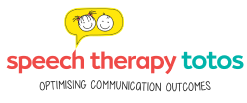Speech Therapy at Home: Late-Talker’s Bootcamp
The Late-talker’s Bootcamp is an online course designed to equip parents with skills to grow their child’s language skills from home.
The course is mostly for parents who have a child who is delayed in talking (see developmental milestones) and/ or perhaps needs to see a speech therapist, but for whatever reason, is not able to.
The Late-Talker’s Bootcamp course is also ideal for parents whose child may already be accessing speech therapy, but would like to know how to continue reinforcing what their child is learning in their speech therapy sessions, at home

My Journey to speech therapy
Ever since I can remember, I have always been a problem-solver. Pursuing speech therapy was honestly the best career decision for me.
I have also been somewhat unconventional, but unapologetic about it.
My return to Kenya from working in Australia, in many ways, was because I wanted to be part of the solution and not the problem.
I’ve talked a lot about the reason I got into the speech therapy profession to begin with…
My youngest sister became hearing-impaired at a young age and there was (and still is) a shortage of speech therapists in Kenya.
There were no speech therapists in Mombasa and in Nairobi, at the time, there was just 1 speech therapist in Nairobi.
This situation threw a spanner to our family’s situation.
Should we have split the family so that my mom and my youngest sister moved to Nairobi to access speech therapy in Nairobi?
Luckily, I had just completed my high school and was contemplating a career direction that would lead to something fulfilling for me.
A career in speech pathology was inevitable.
Fast forward 2010
Why I Created the Late-Talker’s Bootcamp
Late-talker’s speech therapy at home
I decided to make my return back to Kenya after 13 years overseas.
I had finished my studies in New Zealand and Australia and had started working as a speech pathologist (speech therapists are referred to as speech pathologists in Australia) in Australia.
I could easily have remained in Australia and I would had a great career in speech therapy, but my heart would always return to Kenya and all the families like mine that were still stuck with no speech therapy presence for their children.
At my return, Kenya had approx. 5 speech therapists, who were mostly expatriates and were mostly scattered around Nairobi, but most were working part-time and I must add, the number of speech therapists then, was highly transient.
So, I set up shop round about July 2010 and embarked on the arduous task of putting speech therapy on the map in Kenya.
At the beginning, I mostly encountered older children with pronounced communication difficulties, but over time, the ages of the children have come down significantly.
The early years present a limited opportunity for any delays to be completely resolved when your child receives appropriate intervention.
The speech therapy I offered to parents was effective, but I found myself having to give parents pointers of do’s and don’ts to follow at home in order for their child to realise more gains from our speech therapy sessions.
You see, a child would attend speech therapy sessions about twice a week for approximately 40 minutes each session, but their home environment is where they spend the most time.
Even if this child receives the best possible speech therapy from us, the progress they realise will be dependent on what that child continues to be exposed to at home or at school.
I have found that addressing the child’s home environment, which many times, may be the cause or contributor of the child’s language delays, is critical to the progress the child will make in speech therapy.
Anyone can offer ‘Speech Therapy’
Late-talker’s speech therapy at home
I have often joked that ‘speech therapy’ is a way of life. I for one, offer speech therapy to my own children on a daily basis.
Speech therapy is more about how you interact with a child, how you analyse what you should teach when.
Good speech therapists are analytical and creative.
What separates me from someone who is not a speech therapist, is that I can assess what gaps a child, say with a language delay has and devise a therapy plan that aims to close those gaps.
I have knowledge of what skills develop when and what skills serve as prerequisites to other higher skills.
What I mean is, if a child is nonverbal, the first step isn’t to start teaching the child how to say “mama”, oh! no. I know this may be contrary to what you may think.
The first step would be to determine why this child is nonverbal and what pre-requisite skills to language development they haven’t mastered, then start from there.
Anyone can be directed on these aspects, even you the parent, or your child’s caregiver.
This led me to create an online course that parents can access, from their homes, in spite of their busy schedules, which walks them through the steps they should take in order to grow their own child’s language skills.
For some parents, access to speech therapy services may actually be the hindrance- like it was for my parents when my sister needed to see a speech therapist back when she was 3 years.
Because we lived in Mombasa, we had no access to a speech therapist and it is sad how over 20 years on, that has not changed.
To increase access to speech therapy, I created the Late-Talker’s Bootcamp course. Parents can sample the course for FREE to learn the following:
- What the critical brain development period is and why you cannot ignore this small window of opportunity in your child’s language development
- The impact screens (TV, smart phones, tablets, etc.) have on your child’s language development
- 2 common mistakes parents are making that discourage your child’s language growth and tips for how to start getting your child to talk more even if you’re not an expert
The Late-Talker’s Bootcamp simplifies the steps you need to take to help your child start talking or get your child to expand their vocabulary.
Late-Talker Bootcamp simplifies the steps you need to take to help your child start talking or expand their vocabulary.
In the program you will learn:
- the simple ways you can maximise on the teaching opportunities that present themselves every day
- how your actions may be holding back your child’s language skills and how to turn these around
- the various language stimulatory techniques that will grow your child’s language effortlessly
The Late-talker’s Bootcamp has 2 access points; 1.0 and 2.0, with each serving different parent needs.
Late-talker’s speech therapy at home
Late-Talker’s Bootcamp 1.0
Objectives and Takeaways
Overall Objective: Get your child saying their first 50 words
- Learn the importance of the early years of a child’s life and how to maximise on them
- Learn how to build pre-verbal skills (an important first step to language development)
- Learn how to stimulate (encourage) your child to talk
- Learn effective tips for getting your child to talk
Module 1: Introduction
Module 2: Before your child starts to talk
Module 3: How to stimulate language
Module 4: First words
Module 5: Tips for encouraging your child to talk

Late-Talker’s Bootcamp 2.0
Objectives and Takeaways
Overall Objective: Get your child to start combining words (up to 4 words in a sentence)
- Learn the importance of the early years of a child’s life and how to maximise on them
- Increasing your child’s mean length of utterance (combining words)
- Learn language stimulate stimulatory techniques that encourage more engagement
- Learn what to focus on in order to expand your child’s language skills
- Learn effective tips for getting your child to make sentences
Module 1: Introduction
Module 2: Before your child starts to talk
Module 3: Stages of language development
Module 4: How to stimulate language
Module 5: First words
Module 6: How to increase your child’s mean length of utterance
Module 7: Giving instructions to grow your child’s language
Module 8: Building receptive and expressive language skills
Module 9: Tips for encouraging your child to talk
I created the Late-Talker’s Bootcamp course for parents who:
- Have a child aged between 2 – 5 years, who has delayed language skills, i.e. your child is 2 years, but doesn’t have 100 words; 3 years, but doesn’t have 500 words or is 4 or 5 years, but not able to tell a simple story or respond to simple questions
- Are proactive and like to take matters into their own hands when it comes to their child’s development and learning and would like to see their child make steep progress with their expressive language skills
- Have been referred to or are even attending speech therapy services, but would like to learn some of the techniques needed to fast track their child’s language growth
- Are prepared to put in the work outlined and have a go-getter attitude
Why am I the right person to teach the Late-Talker’s Bootcamp course?

Hi, I’m your teacher, Lorna Muthamia-Ochido.
I run a family-centred speech-language therapy clinic, the largest in East and Central Africa. I’ve helped more than 10,000 children optimise their communication outcomes (in other words, I make children smarter J).
My most important job however has been to empower parents- equip them with the necessary skills to mitigate their children’s speech/ language difficulties and set them on a trajectory of lifelong success.
I have created a number of resources (and continue to add to them) to empower parents. Explore our blog posts and videos.
Foundation, is the key.
Because I work in an underserved country, I have not always been able to make my services accessible to all who need it, which compelled me to find a way to get this much needed training out to parents so that they too can be empowered to make the difference in their child’s life.
I am a mama of 3 (Mor- 8; Marwa- 5 and Mara- 2) and a proud homeschooler- I am passionate about enriching children’s learning journey and bringing down barriers that prevent them from succeeding. If you would like to read more about my home-schooling journey, please visit this post from my lifestyle blog: Speech Mama.
Read more about me here.
To learn more about the work I am doing, check some of my posts:








